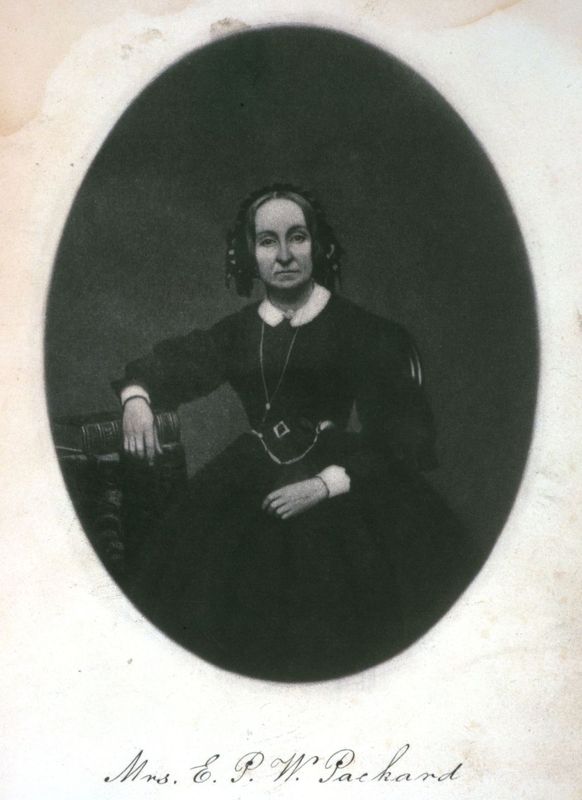Elizabeth Packard is known today as an advocate for the rights of women and a mental health and legal reformer, and the story of how she got there is a little unbelievable.
Born in Massachusetts in 1816, she was the oldest of three children and the only daughter. Her father was a Congregational minister, and because of their family’s middle class status, she was able to get an education in spite of her gender, studying French, algebra, and the classics. Despite her early education and the promise of a better future, Elizabeth was forced into marrying a Calvinist minister (who will not be given the dignity of his name here) by her parents, and they had six children.
When Elizabeth began voicing opinions about religion, child rearing, slavery, and finances that contradicted those of her husband, he had her committed to an insane asylum in which she remained for three years. Although the law stated that anyone who was going to be committed to an asylum had the right to a public hearing first, the exception to this law was husbands: they had free reign to commit their wives, and indeed, the large majority of women who were committed during this time were committed for the “crime” of disagreeing with their husbands and/or male authority.
Even when Elizabeth managed to be released from the asylum, she had to return to her husband, who subsequently locked her into a room in their house and nailed the windows shut. After she was able to communicate her treatment to one of her friends, a judge agreed that a trial should take place to determine the state of her mental health, and thus the famous case Packard vs. Packard began.
Elizabeth won the trial, with one of the witnesses proclaiming, “I do not call people insane because they differ with me. I pronounce her a sane woman and wish we had a nation of such women,” which really describes the way in which women were treated during this period (i.e. as objects who had no right to their own thoughts and opinions). Upon returning to her home, Elizabeth found that her husband had rented their house to other people and taken their children and everything they owned to another city, and Elizabeth had no legal recourse, because married women had no rights in respect to their children or belongings. Imagine that.
This was her inspiration to fight the system and advocate for the changing of the laws: the wrote numerous books, traveled extensively throughout the country campaigning for systemic change for women’s rights and freedom of speech. She lobbied both the Illinois and Massachusetts legislatures for laws protecting the rights of married women, which resulted in her husband giving her custody over them. She also fiercely advocated against insane asylums, founding the Anti-Insane Asylum Society. Numerous laws were passed after her efforts and insistence, and she died in 1897 in Chicago. She had been largely forgotten until her works reemerged in the 1930s and then again in the 1960s. We will forget her no longer.
